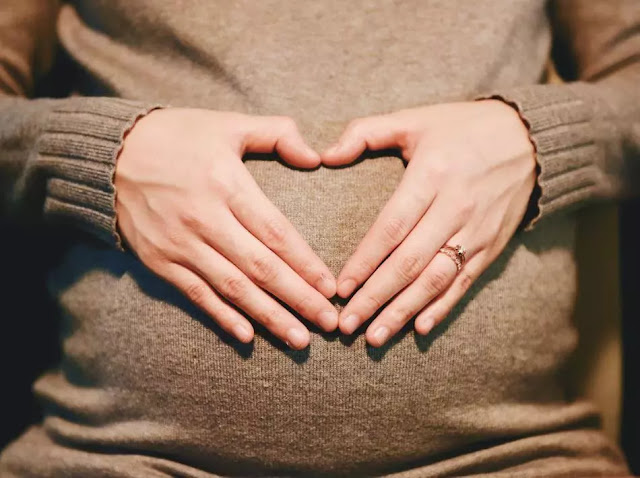Is it difficult to get pregnant late?
Many think that the 30s is the happy medium for motherhood. You're more likely to be stable in your job and in your relationship.
The bad news is there's a huge difference in your capacity when you get pregnant late. As the decade goes on, you become less fertile.
Your chances wane when you get pregnant late, so in your late 30s, your chance of getting pregnant within a year becomes less.
Similarly, miscarriage risk increases during the early 30s but increases quickly when you get pregnant late.

How can I get pregnant late and fast?
- Record your cycle frequency
- Monitor ovulation
- Make love every other day during the fertile period
- Strive for a healthy body weight
- Take vitamins
- Eat healthily
- Cut back on tiring workouts
- Stop the smoking and drinking habits
What are the causes to get pregnant late?
1- Age:
Women normally have some fall in fertility starting in their early 30s. And while many women in their 30s and 40s have zero problems getting pregnant,fertility especially declines after thirty-five. As a woman gets older, normal changes occur in her ovaries and eggs make the process harder to become pregnant.
Although cycles continue to be regular in a woman's 30s and 40s, eggs that ovulate each month are poorer than those from her 20s.
As a woman approaches menopause, the ovaries may not release an egg every month,
which can make it harder to get pregnant. Also, as a woman and her eggs age, she is more likely to have a miscarriage and a baby with genetic problems.
At 45, a woman's possibility of getting pregnant is no more than 3 or 4 percent. It's not impossible,
but helped reproductive technologies are almost always necessary.
The very few eggs left could have abnormalities,so intervention is critical. Success rates are 0 to 1 percent,
and most doctors recommend using eggs which are donated by a young woman for those who want to have a baby between ages 46 and 50.
2- Health problems:
Some women have illnesses or conditions that affect their hormone levels, that can cause infertility.3- Polycystic ovary syndrome:
Women with this rarely or never release an egg. the most common cause of infertility in women is that they fail to ovulate.4- Reproductive problems:
sual problems with a woman's reproductive organs can affect fertility. These conditions could cause the tubes to be blocked, so the egg can't travel in the tubes into the uterus.
5- Lifestyle factors:
Certain lifestyle factors also could have a negative effect on fertility. Examples include smoking, alcohol, weight, training, and having an eating disorder.
Women that are 25 to 35 years old and having regular sex have about a 20 percent chance of getting pregnant a cycle.
After 35, your chances go down. For instance, at 40, you have just about an 8% chance of getting pregnant each month. At 42, it declines to 2 to 4 %.
It's a fact that as women and men age, their chances to have children gets low, although the exact time when this happens can vary individually.
We all know someone who had a healthy nice little baby in their late thirties or early forties.
But of all people who try for a baby at a later age, a lot of them will not have the baby they wanted to have.
Men younger than 40 have a better odds of fathering a child than those who are older than 40.
The health of the sperm men produce seems to decline when they get older. Most men make millions of sperm every day,
but men older than 40 have less healthy sperm than younger men do. The amount of semen and sperm mobility decrease between the ages of 20 and 80.
https://www.livescience.com
Also, you can read 10 Best Tips for Pregnancy After 35
How long does it take to get pregnant late?
Some women get pregnant harder than others, but there are some approved statistics on how long it normally takes.Women that are 25 to 35 years old and having regular sex have about a 20 percent chance of getting pregnant a cycle.
After 35, your chances go down. For instance, at 40, you have just about an 8% chance of getting pregnant each month. At 42, it declines to 2 to 4 %.
Is 39 too old to have a baby?
Experts warn of the risks of women giving birth after 35. Women at 35-45 have a 20-35% chance of miscarriage. With advanced medical treatments, single women and those pursuing a career don’t feel the pressure of a biological clock as much as their mothers did. If having a baby isn't an option, adoption might be. Every word in the news of a miracle baby, it gives women false hope. Biology hasn't changed but technology has. However, the fact stays that the younger the woman is pregnant, the healthier the pregnancy is.Also, you can read Top 10 Questions About Having a Baby at 40
What age is too old for a man to have a baby?
It's a fact that as women and men age, their chances to have children gets low, although the exact time when this happens can vary individually.
We all know someone who had a healthy nice little baby in their late thirties or early forties.
But of all people who try for a baby at a later age, a lot of them will not have the baby they wanted to have.
Men younger than 40 have a better odds of fathering a child than those who are older than 40.
The health of the sperm men produce seems to decline when they get older. Most men make millions of sperm every day,
but men older than 40 have less healthy sperm than younger men do. The amount of semen and sperm mobility decrease between the ages of 20 and 80.





